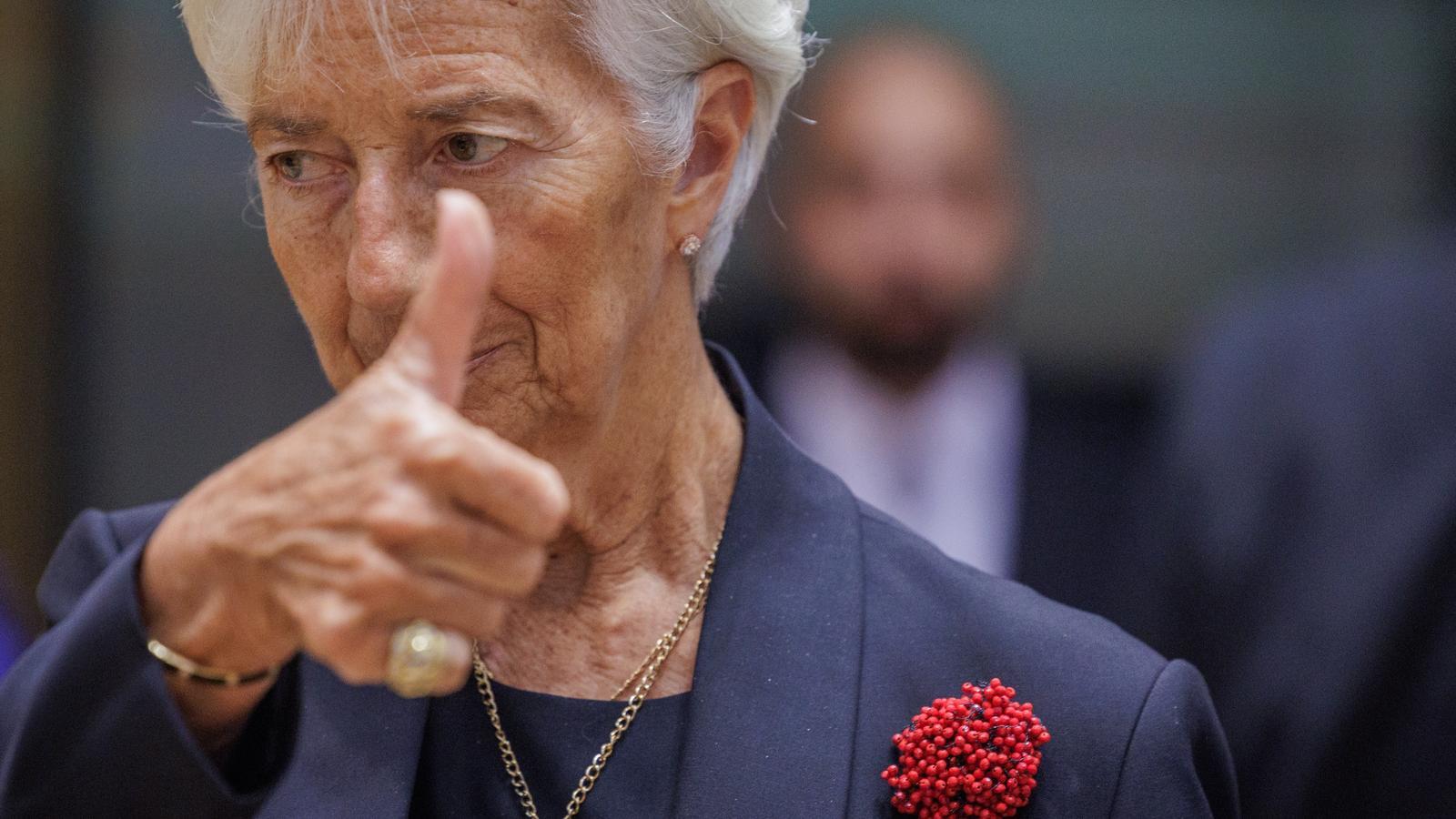The ECB wants to keep a bullet in its chamber against Trump.
The banking institution plans to keep interest rates at 2% and have room to maneuver in the face of a potential trade war.


BrusselsThe European Central Bank (ECB) wants to avoid any missteps and intends to keep a bullet in the chamber against a potential trade war between the European Union and the United States. The bank's president, Christine Lagarde, has noted on more than one occasion the "uncertainty" that Donald Trump in the White House represents for the eurozone economy. In the midst of a tariff conflict, it is most likely that the ECB's governing council will not touch interest rates in the meetings it will hold this Thursday, as expected.
Lagarde already suggested at the last press conference of the governing council that the cuts in the price of money would stop – at least temporarily – and it will be the first time that it has ruled out cutting them throughout 2025. In fact, the bank has already lowered interest rates seven times in a row, down to 2%.
The reasons behind this decision are mainly two: inflation is already under control (around 2%) and the ECB wants room for maneuver in the face of a potential outbreak of the trade war between the United States and the EU. Trump extended the partial truce in the European club and has postponed a supposedly final decision until August 1. If an agreement is not reached, Washington threatens to apply a 30% import tariff on European products, a tax that European leaders have already warned would practically mean the end of trade between the two powers.
It should be remembered that interest rates are the ECB's main tool to try to curb rising prices—if it raises them, as in the midst of an inflationary crisis—or to boost the economy—if it lowers them, as in times of recession. Therefore, in the worst-case scenario, Lagarde would still have the possibility of reacting and further lowering interest rates to try to alleviate the consequences of a trade war with the United States and stimulate economic activity.
As Lagarde pointed out at the last press conference of the ECB's governing council, "if there is an escalation of trade tensions, growth and inflation would be lower than expected; and, conversely, if the tensions are resolved with a favorable outcome, growth and, to a lesser extent, inflation would be lower." Thus, it is most likely that, if there is an agreement between Brussels and Washington, the ECB would opt for stricter policies; but if Trump ends up applying 30% of the tariffs, would opt to continue cutting rates.
The ECB makes these projections because the EU has a trade surplus with the United States, and therefore, it's logical that an increase in tariffs by the White House would, above all, slow down the eurozone economy.
The main objective of the ECB's interest rate hike was to appease the eurozone's price crisis. In just over a year, the banking institution abruptly raised the price of money, reaching 4.5% two summers ago. However, as the inflationary trend has slowed, the price of money has also fallen. In fact, it is now around 2%, the target the ECB itself set for itself.
According to the ECB's economic forecasts, the eurozone will reach this target this year, staying just shy of 2% inflation. By 2026, the price rate is expected to rise to 1.6%, and in 2027, it would see a slight rebound, reaching 2% again. In contrast, core inflation—which excludes more volatile products such as fresh food and energy products—will remain slightly higher. It will be 2.4% this year, and 1.9% in 2026 and 2027. Furthermore, the ECB forecasts that gross domestic product (GDP) growth in the eurozone countries will remain modest, hovering around one percentage point: 0.9% in 2025, and 1.3% in 2026.
